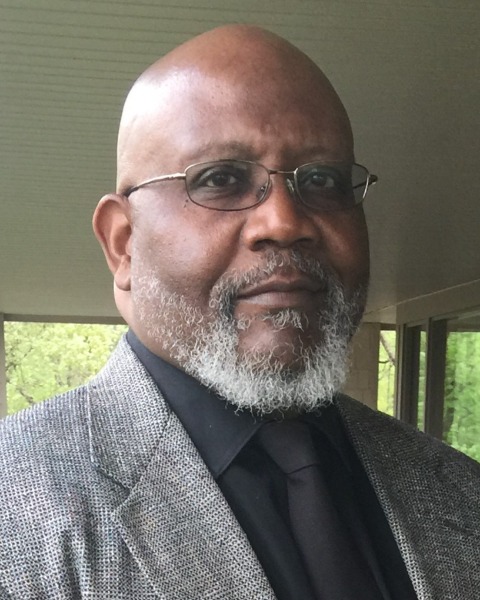Collaborative, Participatory & Empowerment Evaluation
“Our Words Are Vulnerable”: Storytelling Through Anti-Racist Methodology that Centers Care and Authenticity
-

Stacy Huff, M.S.
Graduate Student
University of North Carolina Greensboro
Burlington, North Carolina, United States -

Stacy Huff, M.S.
Graduate Student
University of North Carolina Greensboro
Burlington, North Carolina, United States -

Reginald Jackson, M.Ed.
Graduate Student
University of North Carolina Greensboro, United States -

Reginald Jackson, M.Ed.
Graduate Student
University of North Carolina Greensboro, United States -
TT
Tiffany Tovey, PhD
Director of the Office of Assessment, Evaluation, and Research Services
UNC Greensboro, United States -
TT
Tiffany Tovey, PhD
Director of the Office of Assessment, Evaluation, and Research Services
UNC Greensboro, United States -
CK
Chris Kelly, Ph.D.
Director of PPEERS and Clinical Assistant Professor
University of North Carolina Greensboro, United States -
KK
Kimberly Kappler hewitt, Ph.D.
Professor of Educational Leadership and Department Head -Department of Leadership and Counseling
Eastern Michigan University, United States -
OJ
Onna Jordan, M.S.
PPEERS Program Manager
University of North Carolina Greensboro, United States -
MR
Mark Rumley, Ph.D.
Assistant Director of PPEERS and Assistant Professor of Educational Leadership
University of North Carolina Greensboro, United States -
AW
Annie Wimbish, Ph.D.
Executive Leadership Coach for PPEERS
University of North Carolina Greensboro, United States
Presenter(s)
Author(s)
Presenter(s)
Author(s)
Presenter(s)
Author(s)
Location: White River Ballroom C
Abstract Information: Anti-racist evaluation work is not easy; it requires time, authenticity, care, and critical reflection on how our work impacts those involved. This is true for both evaluation design and project implementation. It requires those implementing the project to look directly at those aspects of their work that they may not be proud of, and it requires the evaluator to carefully consider their methods, data collection, and reporting to ensure that they do not cause any unintentional harm. Our evaluation team undertook a two-year internal evaluation project for a principal preparation program. This program trains current education practitioners to become leaders who focus on promoting equity within rural school districts in a Southern US state. The project team focused specifically on Leaders of Color who had completed the program to understand their experiences both within the program and their sponsoring districts. We developed an anti-racist evaluation strategy to engage this work intentionally and with utmost care. This included intentionally building our evaluation team, engaging participants in co-design of instrumentation, conducting interviews without evaluator presence, engaging participants in review of transcripts to honor their perspectives and secure their privacy/identity, and sharing findings with participants before dissemination. In this session, we tell the story of our journey in developing and conducting this study, from inception to reporting, highlighting challenges, successes, and lessons learned along the way. We aim to engage our attendees in critical reflection about how to incorporate anti-racist principles throughout the entire process of evaluation, including design, implementation, and dissemination.
Relevance Statement: When we ask participants to tell us their stories they in turn trust us to accurately and carefully bring those stories to life. This is a task that our evaluation team took to heart. We sought to tell the stories of Leaders of Color in a principal preparation program using an anti-racist methodology that allowed them to share their experiences authentically with one another. Our work is grounded in Critical Race Theory (CRT) and diversity, equity, inclusion, and anti-racist practices (Delgado & Stefancic, 2017). CRT is rooted in the understanding that historically racism has been a cultural and social norm within the United States and is intricately intertwined in America’s policies and systems (Sawchuk, 2021). These norms have privileged whites of western European descent and disenfranchised those who are not. Recognizing our whiteness as an evaluation team and having a deep commitment to anti-racism and continuous critical reflection, we sought to learn from our Leaders of Color to inform our anti-racist efforts. Through extensive collaboration with Leaders of Color in the program, we designed the qualitative data collection and interview protocol. Leaders of Color were matched with a dyad partner to interview each other with no evaluator present. Leaders of Color then had the opportunity to follow up with the evaluation team to add context and edit their stories. One Leader of Color participant joined the evaluation team for coding and analysis. Through this method, participants shared with us that they experienced less anxiety and engaged in more authentic conversation, which for us meant that we gathered richer, more powerful data. By engaging participants in every step of the process, participants had more power over their own stories. In anti-racist evaluation, there is an ethical commitment to participants that we use their stories for positive impact. The aim for us was that Leaders of Color would be able to share their stories freely and without fear of reprisal. As one participant stated in their reflections, “our words are vulnerable,” and this was a process that allowed them to ensure that the meaning of their words was understood, acknowledged, and would lead to subsequent action. Anti-racist evaluation work needs to be engaged with actively and iteratively. In this roundtable session, we will reflect on the process of this investigation, including the feedback we received from the Leaders of Color about this process. Additionally, we will share our experiences from our diverse perspectives, discuss lessons learned, and highlight key takeaways from this process. We will engage the audience in reflecting on how they have or could incorporate anti-racist methodology in their evaluation practice.
